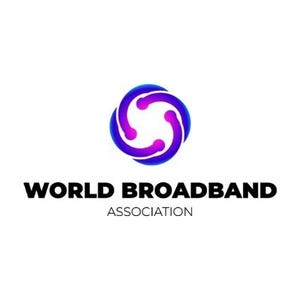WBBA Development Congress 2023 Highlights Importance of Continuous investment and Innovation in Broadband
Even as the broadband industry has matured into a global behemoth, there remains continuous opportunities for new growth – especially if various industry stakeholders collaborate on new innovation and investment. #Sponsored
December 11, 2023

Even as the broadband industry has matured into a global behemoth, there remains continuous opportunities for new growth – especially if various industry stakeholders collaborate on new innovation and investment.
That was a general theme of the recent World Broadband Development Congress, held at Network X Paris, with the slogan: “How We Can Accelerate Broadband Excellence.”
After welcome remarks from Dr. Li Zhengmao, Chairman, WBBA, the event kicked off with keynote addresses from a veritable who’s-who list of industry leaders.
Tomas Lamanauskas, Deputy Secretary General of International Telecommunication Union, highlighted the critical role that broadband plays in people’s lives around the world. That role became even more entrenched during the pandemic, when broadband kept people connected both at work and at home. But the industry’s mission is far greater than keeping people connected during a pandemic – it’s the vehicle for continued global development, according to Lamanauskas.
“It’s about the broader world we live in today,” Lamanauskas said. “The world we live in today needs a lot of help to ensure that it develops and brings prosperity to everyone.”
Broadband access and innovation is vital to that shared success, an idea echoed by others on stage. In particular, Lamanauskas noted the massive opportunity in connecting millions and millions of global citizens who still don’t have reliable broadband connections, as well as the industry’s shared role in climate action and the greater good. But the event also stressed the importance not just in connecting people but in ensuring meaningful usage of those connections for maximum social and economic impact.
In that sense, the “digital divide” isn’t just about the connected versus the unconnected – it’s about the highest possible quality connections and services, too.
That’s one of the driving forces behind cross-industry and government collaboration on building out ultra broadband networks, something Kim Jin, Vice President & CMO, Optical Business Line, Huawei Optical Business Product Line, spoke about during his keynote address.
Jin stressed the importance of ongoing digital transformation efforts across industries – and of the growth of the digital economy in countries around the world. Both depend significantly on continued investments and innovation in broadband networks. Jin shared several statistics that show both the business opportunity for broadband leaders as well as the role broadband is playing in the global economy. For example, global spending on digital transformation is expected to the digital economy is expected to account for nearly one-fourth of global GDP by 2025 – with more than 170 countries and regions having adopted formal digitalization strategies.
Executing on those strategies will require close collaboration with industry leaders like Huawei and many other stakeholders.
Like Lamanauskas, Jin underscored the importance of broadband investment in driving not just quantitative change – such as more people online, or percentage increases in productivity – but in qualitative change as well. It’s not enough to merely connect people – industry stakeholders like ITU or Huawei must also invest in how people use that connectivity for economic and social progress.
“Fixed broadband is a key contributor for the digital economy,” Jin said, citing research that shows the greater the penetration of broadband usage is, the greater its economic impact becomes. It’s a very real correlation that should be motivating industry players: A 10% increase in fixed broadband penetration could increase global GDP by 1.3%, according to Jin, while each time operators double broadband speeds, they’re adding 0.3% in GDP output.
The opportunities abound not just in developing countries, where the focus is still on earlier phases such as increasing fixed broadband access, but also in advanced regions, where continuous investments in technical innovation are setting the stage for “gigabit and beyond” societies, according to Jin, with 10GB connections eventually becoming commonplace. Jin noted that in China, rapid development of gigabit optical networks is already contributing 1.89 GDP growth per year.
Jin shared three forces that Huawei sees catalyzing the global shift from 100MB fixed broadband to gigabit (phase two) and eventually 10GB (phase three) everywhere.
The first driving force is video, which became one of the main bandwidth consumers in the home. As HD video has given way to emerging interactive uses such as AR and VR applications, video services increasingly need a faster broadband connection – 1GB. In fact, the newest applications – such as 8K video streaming or holographic communication – bring broadband requirements that exceed even 1GB.
That leads to the second driving force: experience, as in user experience. “Lots of users are willing to pay for a better experience,” Jin said, noting the smart home as a factor in addition to new immersive video services. “People always want a better experience,” Jin said, and continuous investment and improvement in broadband speeds – 1GB and beyond – is necessary to make that happen.
Finally, intelligence – yes, as in machine intelligence or AI – will drive the next wave of innovation en route to 10GB broadband. The bandwidth demands of AI, along with consumer innovations such as cloud-based 3D gaming, will require not just faster broadband but more intelligent and automated network architectures and connections.
“A large capacity, unblocking, and reliable network is the key to unleashing computing power,” Jin said.
That’s where Huawei and its partners and collaborators will play a pivotal role, because all of the above depends on broadband innovation.
You May Also Like










